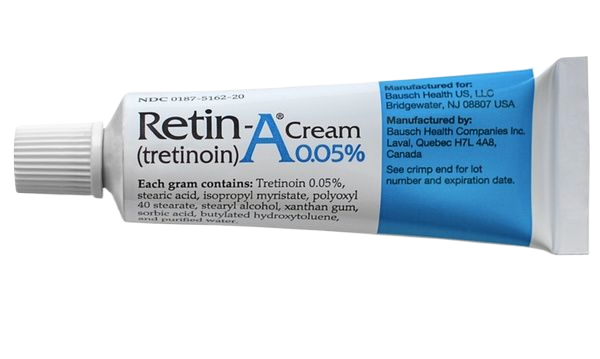






| Package |
|
Free pills | Free shipping | Add to Cart | |||||
|---|---|---|---|---|---|---|---|---|---|
|
2 Cream
|
|
-- |
|
|
|||||
|
3 Cream
|
|
-- |
|
|
|||||
|
6 Cream
|
|
-- |
|
|
|||||
|
9 Cream
|
Airmail Free Shipping
|
 |
|
|
|||||
|
12 Cream
|
Airmail Free Shipping
|
 |
|
|
|||||
| Package |
|
Free pills | Free shipping | Add to Cart | |||||
|---|---|---|---|---|---|---|---|---|---|
|
2 Cream
|
|
-- |
|
|
|||||
|
3 Cream
|
|
-- |
|
|
|||||
|
6 Cream
|
|
-- |
|
|
|||||
|
9 Cream
|
Airmail Free Shipping
|
 |
|
|
|||||
|
12 Cream
|
Airmail Free Shipping
|
 |
|
|
|||||
Retin-A is a drug which works on the molecular level of the skin. It is derived from vitamin A. It has strong potential to work as anti-ageing cream. The cells of the skin act as receptors of retinoid. It is mostly known for its ability to retain collagen. This helps in keeping the skin firm.
There are various brands in the market selling products containing Retin-A. These brands include Tazorac, Avage, Renova and even Retin-A Micro. Neutrogena is the latest crop among cosmetics containing Retin-A.
Retinoid cream can be found in several over-the-counter cosmetics and skin care products but not Tretinoin. This topical retinoid is most effective and is only available if you have a Retin A prescription. Tretinoin is among the most popular Retin A prescription medications prescribed to achieve healthier-looking skin. Retin A cream is one of the most effective skincare products against aging skin.
If you are also a retinoid fan, this blog is for you so keep reading to explore more about Retin A and how to use Retin A for best outcomes.
What is Retin A And How Does Retin A Work?
Tretinoin belongs to the class of medications called retinoids. Tretinoin or Retinoic Acid is a retinoid (a derivative of Vitamin A). Retin A is a common brand name. Retin-A cream is a powerful anti-aging and anti-acne medicine for the skin. Generally, Tretinoin (Retin-A, Avita, Atralin, Altreno) is used for the treatment of acne.
You can find different Retin A gel strengths and forms such as Retin A gel, solution, and cream. Tretinoin (Retin A) is also used to reduce wrinkles and to improve spotty discoloration and rough-feeling skin when paired with other skin care and sunlight avoidance programs.
Tretinoin has been used to treat skin conditions for years. It improves skin conditions by enhancing the cellular turnover of the skin. It speedily saturates the layers of the skin and directs cell behavior including how reckless skin cells should grow, what job certain skin cells should do, and when the cells should die.
Retin A works by unclogging pores and encouraging the peeling of affected skin areas. Retin A prescription strength and which Tretinoin is best for you to use depends on your skin condition and your skin’s response to treatment. If the condition of your skin lasts or gets worse, tell your doctor.
When it comes to cosmetic and dermatological treatments, topical retinoids are the mainstay treatment for acne and wrinkles. Tretinoin (Retin A) is one of the most prevalent prescription medications for acne treatments in dermatology. Retinoids are the active molecules impacting skin structure formation in cosmetic and dermatological procedures.
Retinol is a common ingredient found in many skin creams, serums, and lotions. It can clear up acne and has considerable anti-aging effects. Retinol-containing cosmetic products are easily available over the counter however the stronger concentrations of Retinols are available by prescription only.
Tretinoin (Retin A micro) is a retinoid which means it is a form of Vitamin A. Retinoids encourage cell turnover on the skin. It allows the quick elimination of dead skin cells and the appearance of new skin cells. Rapid cell turnover opens the pores, freeing trapped bacteria and irritants that cause acne.
Retinoids such as Retin A cream for acne also help the skin to normalize its natural oil production which can avoid future breakouts. Retinoids also possess anti-inflammatory properties which help clear active acne pustules.
Tretinoin does not cure acne but controls it. During the initial 7-10 days of using this cream, your acne may get worse. When you use it continuously, you will notice that acne sores heal and disappear. Usually with regular use of Retin-A cream, you can see the improvements in the treated skin after two to three weeks or maximum after six weeks.
Tretinoin (Retin A) has been broadly studied for its influence on the visible signs of aging. Retin A for fine wrinkles has shown short-term as well as long-term effects on the appearance of wrinkles. This is why Tretinoin is considered a prevalent ingredient in several over-the-counter face and eye creams.
Retin A can also be used to reduce the visibility of acne sacking. As Tretinoin boosts cell turnover on the skin, it can speed up new cell growth in the areas of scarring. Several forms of tretinoin have been successfully tested as an efficient treatment for ane scars. Sometimes, Tretinoin is also used to prepare skin for chemical peel treatments that mark scarring.
Hormonal acne is also known as adult acne. It is prompted by fluctuations in hormones. Many clinical studies demonstrated that Tretinoin decreases overall inflammation and the number of pimples. Tretinoin or Retin A can be used to treat hormonal acne however it works best when paired with other compatible therapies.
Tretinoin medication is sold under the brand name Retin A. Generic Tretinoin is less expensive than the brand name version. However, both generic and brand-name Tretinoin have the same effects on the skin including reducing fine lines, keeping pores clean, and fading discolorations.
Prescription Retin-A is strong and may cause serious side effects if not used as recommended. The best part of this medication is that it immediately starts working after you put it on the skin. Tretinoin and Retin A are available in various strengths and formulations.
A dermatologist or healthcare provider who prescribes Tretinoin discuss with you to evaluate which Tretinoin brand is best or which tretinoin strength is best for your particular condition. They also help you with how often you need to apply this product for anti-wrinkle, anti-acne, or other purposes to attain clear-looking skin.
If you see technically, both Retin A and Retinol do the same thing. When it comes to Retinol vs Retin A, the major difference between both products is, Retin A is much more influential than Retinol. Retinol is weaker than Retin-A. It is transformed into retinoid acid to be used by the skin however Retin-A is directly used by the skin as soon as you apply it. Because Retin A is stronger than Retinol, it is not as well tolerated by sensitive skin texture.
It is extremely important to be aware of how to use Retin A to get the maximum outcomes and avoid side effects. Follow the instructions provided by your dermatologist or healthcare professional. Read the patient information leaflet before using Tretinoin. Usually, this medication is used at bedtime every day. Use it exactly as recommended. Do not use less or more of the product than prescribed by your healthcare provider.
Stick to your dermatologist's instructions mentioned on the prescription label. Generally, you can use this medication every night but at first, you may not want to do that. Initially, you may experience skin irritation and peel, to manage that, start gradually. For example, you can use Retin A every third night and then every second night as your skin tolerates the medication then you can follow the regular dosing schedule.
Your healthcare professional can help you determine the exact dosing regimen depending on how your skin is tolerating the product. They can guide you to improve your skincare routine considering certain essential factors such as skin type and sensitivity.
Generally, lower strengths of Tretinoin (0.01% or 0.025%) are prescribed for mild to moderate acne treatment while higher strengths of Tretinoin (0.05%) are prescribed for stubborn or more severe acne treatment. If you are still wondering which Tretinoin is best for acne, let your dermatologist decide if you want to see the best before and after outcomes.
When you first use Tretinoin to treat acne, commonly causes redness, irritation, and scaling as mentioned above. After constant use, you can start to notice fewer acne lesions and a significantly improved appearance of your skin. Tretinoin (Retin A) can exaggerate your acne during the initial weeks of therapy but you can see considerable results after a few weeks.
Retinols speed up the skin cell turnover that provisionally sheds off more dead skin cells. It creates an interval before the new and healthy cells appear at the skin's surface. The new skin gets exposed before it is prepared resulting in irritation, redness, or discoloration.
To reduce skin irritation with Retin A, apply a good moisturizer or night cream afterward, keep your skin hydrated, and always wear sunscreen to protect your skin from sun damage. Maintain a basic and gentle skin care routine till your skin adjusts to the medication. If the irritation persists even after the first few weeks, call your doctor right away.
Tretinoin or Retin A cream is a prescription medication so you need a Retinol A prescription to buy topical Tretinoin. It is not possible to buy over the counter Retin A because it is a stronger medication. You need to consult a healthcare provider or dermatologist to get a Tretinoin prescription.
Whether you need Tretinoin or Retin A buy online at great prices. You can easily get Retin A online from various online pharmacies and the Retin A website. Online pharmacies allow you to consult a healthcare professional online and get a prescription if you do not have one.
The only non prescription retinoid medication that is available over the counter is Differin (Adapalene).
Use Tretinoin only on the skin. Do not apply the medication inside the mouth, nose, or eyes. Also do not apply Retin A to scraped, cut, sunburned, or eczema-affected skin. If someone swallows this medication by mistake, call the local poison control center or local emergency services.
Do not use topical products or cosmetics containing a lot of lime, menthol, or alcohol, as these can sting your skin, particularly during the initial days of using Tretinoin. Avoid using other topical medications or dietary supplements without consulting your doctor to avoid any drug interactions.
Do not use Retin A if you are pregnant, trying to conceive, undergoing fertility treatment, or breastfeeding your baby. Make sure your healthcare provider knows if you ever had eczema, actinic keratoses, skin cancer, or any other skin conditions.
If you ever had an allergic reaction to Tretinoin or other ingredients in this medication, do not apply Tretinoin to your skin. Tell your doctor if you experience severe side effects after using Tretinoin or mild side effects such as skin dryness, burning, pain, peeling, redness, flaky skin, and stinging persist for longer.



